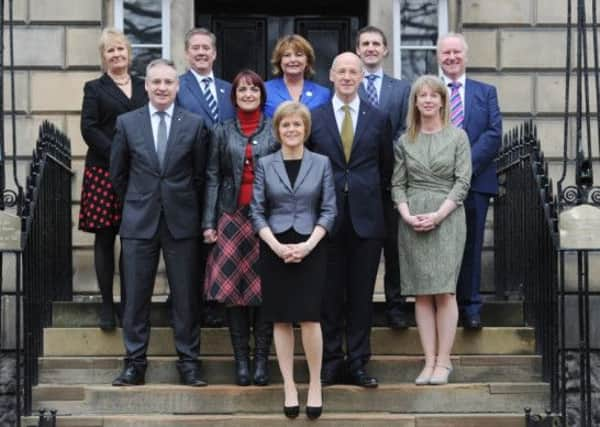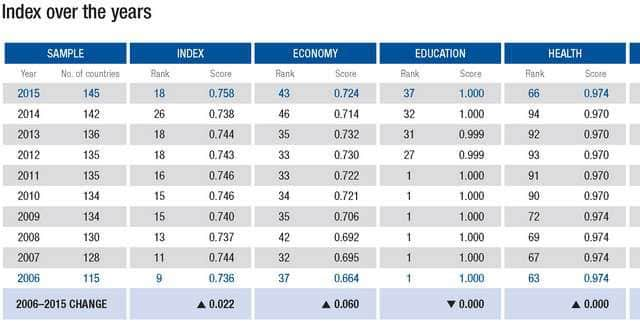UK in top 20 nations for gender equality


The World Economic Forum (WEF) has ranked Britain 18th out of 145 countries for equality in a range of socioeconomic and political opportunities.
With the analysis of ten years’ worth of data from at least 109 continuously-covered countries informing their research, the Global Gender Gap report highlights the United Kingdom’s strengths and weaknesses as an equal opportunities nation.
Advertisement
Hide AdAdvertisement
Hide AdIn terms of employment, 65 per cent of those in senior posts were male, with this figure rising to a whopping 77 per cent of government ministers.


At present, there is a £17 per £100 earned average pay difference in favour of men in Britain, despite the majority of university graduates (57 per cent) being female.
Scotland in recent years has taken steps towards gender equality, with the election of Nicola Sturgeon as First Minister justifying Scotland and the United Kingdom’s status as part of the 50 per cent of countries surveyed to have had a female head of state.
In addition, the SNP have also successfully implemented a Holyrood cabinet split 50:50 by gender.
The findings of the report have been considered by Polly Trenow, Senior Policy and Campaigns Officer for gender equality campaigners The Fawcett Society.
She said: “The recent increase in the number of women MPs, the small fall in the gender pay gap and the recent success on getting more women on to boards is a sign that change can and will come.
“However, this change is much too slow. According to this new report, it will be 2133 before women have economic equality in this country.
“It is vital that we take positive action to increase number of women in senior positions, promote part-time and flexible working for at all levels and share the care work equally between men and women.”
Advertisement
Hide AdAdvertisement
Hide AdThe large-scale WEF study, which assesses how well or badly a nation is making use of its female talent pool, is topped by Iceland.
Northern hemisphere nations Norway, Finland and Sweden take the next three positions with Ireland competing the global top five.
Well away from the Scandinavian success stories sit Iran, Chad, Syria, Pakistan and finally Yemen in 145th position.
The Gender Gap report by the WEF uses data harvested between 2010 and 2013 from research into economic participation and opportunity, educational attainment, heathcare and political power.
Each country’s ranking is calculated using a system that allows for differences in access to resources and opportunities within each country.
All pay gap data collected uses the median pay figures for women and men in full-time employment. Assuming the pace of socioeconomic and political aspects were to stay the same, it would take 118 years for gender equality to be achieved.